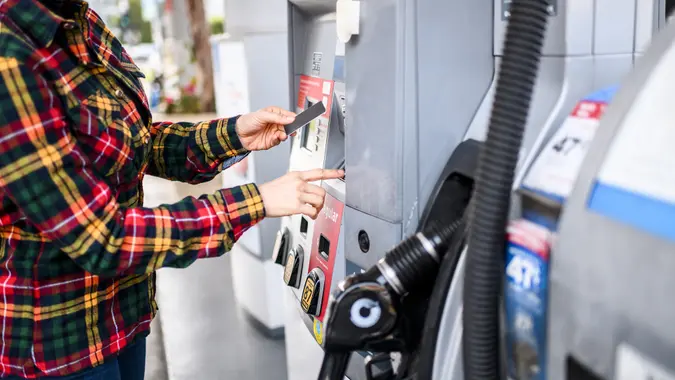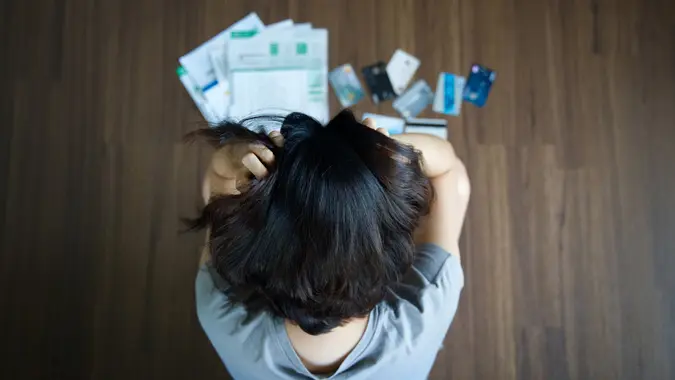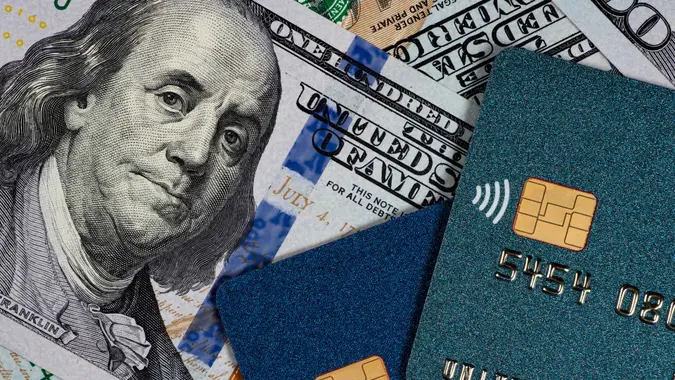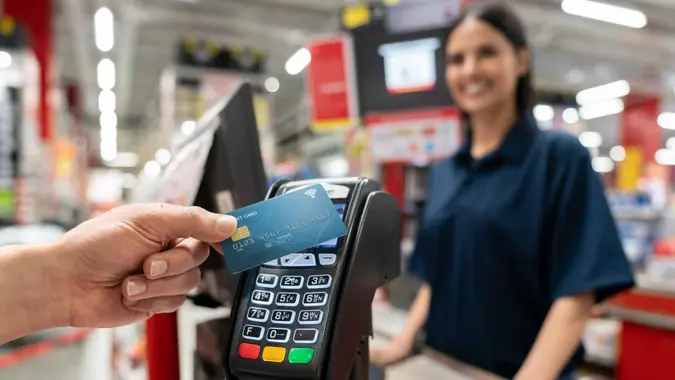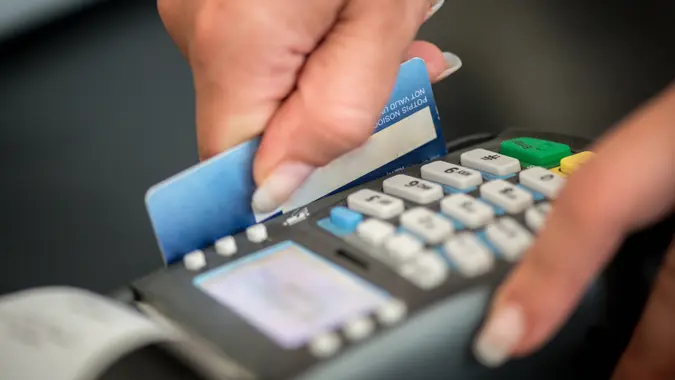Why Your Credit Matters for Big Purchases in 2024
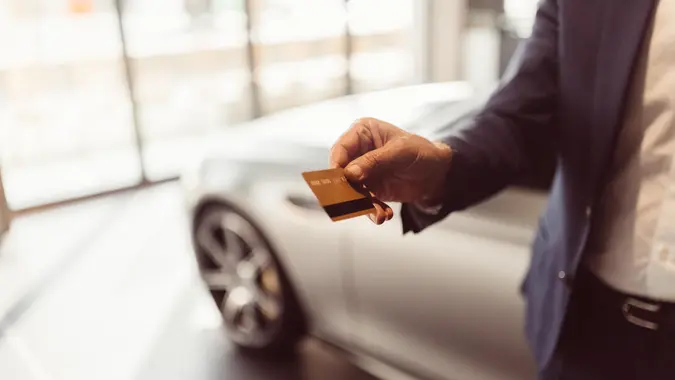
Commitment to Our Readers
GOBankingRates' editorial team is committed to bringing you unbiased reviews and information. We use data-driven methodologies to evaluate financial products and services - our reviews and ratings are not influenced by advertisers. You can read more about our editorial guidelines and our products and services review methodology.

20 Years
Helping You Live Richer

Reviewed
by Experts

Trusted by
Millions of Readers
Credit plays a huge role in your financial journey, so when considering building your credit, should you use your credit for big purchases? Let’s start with why credit matters.
According to Consumer Reports, FICO scores have a scale of 300 to 850, and a credit score between 670 and 739 is generally considered “good.” Good credit means qualifying for lower interest rates for big-ticket items like a refrigerator, saving you money in the long run.
Lenders use your credit score to determine what type of loan you qualify for. A low score means you may be denied a low-interest loan. Insurance companies use credit-based insurance scores to figure out what your auto or homeowners insurance will be, so a good score leads to — you guessed it — lower premiums.
If you rent, landlords check your credit score and a high credit score might reduce the amount required as a security deposit. Employers check credit reports when considering an applicant. A bad score is a red flag for many jobs.
Here’s more on whether you should use a credit card for big buys this year, and why or why not.
Pros of Using Your Credit Card for Big Purchases
Borrow for Needs
According to Ryan Zimmerman, broker and owner of Concierge Realty Group, borrowing money from your bank, or using your credit card, means you can purchase necessities even if you don’t have access to cash. For example, maybe your cash is earning interest and it makes sense to leave it where it is and use credit instead.
Building Credit History
Responsible use of credit, like paying off purchases on time, builds and improves your credit score. This is important for bigger purchases like a house or car.
Zimmerman noted, “Having the highest credit score possible will result in the lowest possible interest rate.” And the lower your interest rate, the more money you save. And the quicker you can pay off that loan.
Protection and Rewards
Credit cards have protections like fraud liability protection and warranties. Many also offer travel or cash-back rewards.
Managing Cash Flow
Using credit allows you to spread out payments on larger purchases over time, which is useful if you need to maintain liquidity for other investments.
Emergency Readiness
Access to credit means you have a financial safety net, which is crucial in unexpected situations like illness or home repair.
Consider the Cons
Cycle of Debt
A homebuyer’s low credit score means they will not qualify for a low-interest loan, which means taking out a loan with higher interest rates. This can start a cycle of debt that’s hard to get out of. So if you have a low credit score, you’ll want to spend time and effort improving it before using your credit to make any large purchases.
Debt Accumulation
It’s easy to overspend when using a credit card because you can put off thinking about how you’ll pay it off until later and have that awesome new car today. But hit the brakes because once that new car smell wears off, you’ll be faced with high levels of debt. Zimmerman cautions that if your goal is a great credit score, have a plan for how you will pay off your balance in full with every statement.
Financial Stress
According to Forbes, Managing large amounts of debt means personal stress. It also limits your financial flexibility — the balancing of your needs today with your needs in the future. Like with physical exercise, where you pay in sweat equity today for a stronger body tomorrow, planning with your family or a financial advisor gives you more control over your finances.
Hidden Fees
Some credit agreements have hidden fees or penalties that increase the cost of borrowing. Ask family or friends about the type of credit cards they use to compare.
But each person’s needs are different, so find what is best for you. Just make sure you do your research before signing up for a new credit card.
Maximizing Your Credit Score Before and After Big Purchases
Before
Check your credit report for any errors and dispute inaccuracies. Make sure to take a hard look at any existing debt and pay it down. It’s also important to avoid opening any new credit lines, which can temporarily reduce your credit score. Lastly, look back at your bank statement to ensure you have a history of on-time payments and continue making those payments on time.
After
Plan to pay off the minimum on time every month and set up automatic payments to help you. Zimmerman advises making sure you have the means to pay off the balance in full and without fail to avoid punishing interest rates on balances that carry over. Monitor your credit score and adjust your spending habits if they dip.
The key is to pay down your existing debt before you take on more. If you get money unexpectedly — for example, a nice tax refund — avoid a shopping spree and instead treat yourself to the satisfaction of paying down your debt faster.
Making informed financial decisions puts you in control of your spending. By maintaining a good credit score before and after purchases, you ensure good financial health and flexibility and that is truly priceless.
More From GOBankingRates
 Written by
Written by  Edited by
Edited by 




